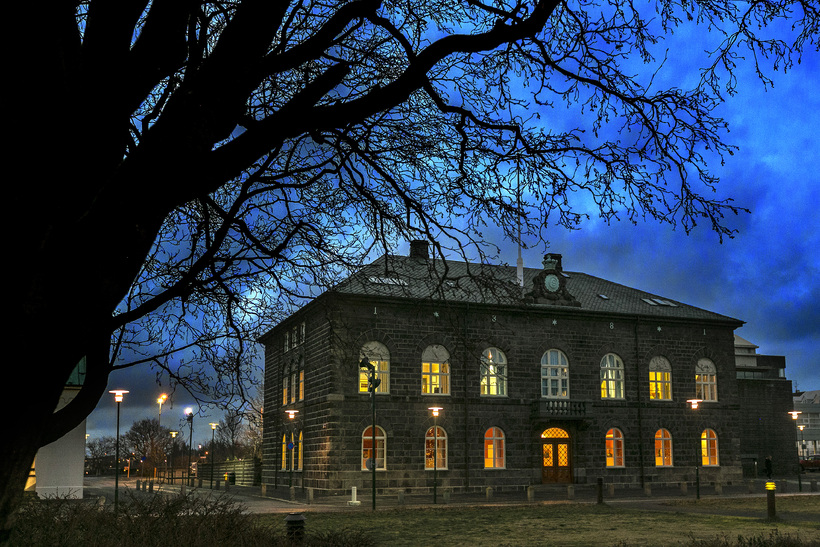Popular at the expense of everyone else


The recent rise in popularity of Iceland's Pirate Party ('Píratar') is at the expense of all the other political parties represented in the Icelandic parliament, Alþingi, according to analysis by polling company Gallup. The Pirates currently enjoy 30% support according to the latest Gallup poll which makes them the country's most popular party. This is sixfold what they got from the ballot boxes in the last general elections in April 2013.
Nearly every single voter, who supported the Pirate Party in the 2013 elections, still does according to the analysis. The largest part of the increased support comes from the centrist Progressive Party ('Framsóknarflokkurinn'), which leads the current coalition government, or 5.5%. The second largest part, or 5%, are voters who voted for parties which did not get any representatives elected two years ago. The third largest part comes from the opposition party Bright Future ('Björt framtíð'), which like the Pirates is a relatively new party, or 3.9%.
Furthermore the Pirate Party takes 3.2% from both the conservative Independence Party ('Sjálfstæðisflokkurinn'), which forms the current coalition with the Progressive Party, and the leading opposition party the Social Democratic Alliance ('Samfylkingin'). Finally, 2.4% of the Pirates' recently increased popularity comes from the Left Green Movement ('Vinstrihreyfingin - grænt framboð'), the party furthest to the left in the Icelandic parliament. The largest share therefore comes from parties that position themselves in or near the centre of Icelandic politics.
This is in line with the analysis of Professor Gunnar Helgi Kristinsson from the University of Iceland who said to mbl.is recently that the Pirate Party's rise in popularity was an indication of lasting dissatisfaction with the traditional parties. Not only the two government parties but also the opposition parties. That included Bright Future in spite of the fact that the party is, like the Pirates, a relatively new party. However, Kristinsson said the Pirates had a somewhat sharper and more radical tone which might suggest a growing dissatisfaction.
Related articles:












